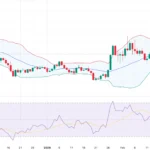The second quarterly installment of advance tax for FY 2025-26 (AY 2026-27) is due on September 15, and taxpayers with liabilities above Rs 10,000 have been advised to pay taxes to avoid penal charges. A monthly interest of 1% is levied on delays or shortfalls under Sections 234B and 234C of the Income-tax Act.What is advance tax and who needs to pay?Advance tax, also called the ‘pay as you earn tax’, has to be paid in installments across the financial year. Any taxpayer with a total liability of Rs 10,000 or more in a year must pay advance tax. Salaried individuals are excluded if their employer deducts the correct TDS and they have no other income source, according to an ET explainer.However, tax experts note that salaried taxpayers often still face penal interest when they have additional income from capital gains, property, or other sources not covered by TDS. Senior citizens (60 years and above) are exempt if they do not have income from business or profession.Advance Tax Due date conditions for FY 2025-26As per the Income-tax Act, advance tax must be paid in four installments. The deadlines and percentages are:
What happens if you miss advance tax deadline?A penal interest of 1% per month or part thereof is charged:
- Section 234B applies when advance tax is not paid or is insufficient.
- Section 234C applies when instalments fall short of the prescribed percentages.
When Section 234C appliesInterest is charged if instalments fall short of prescribed thresholds:
- Less than 12% of assessed tax by June 15
- Less than 36% by September 15
- Less than 75% by December 15
- Less than 100% by March 15
Exceptions to penal chargesNo interest will be charged under Section 234C if the shortfall arises due to income that is difficult to estimate, such as:
- Capital gains
- Lottery or gambling winnings
- First-time business or professional income
- Dividend income
Relief is allowed only if the tax on such income is paid in the immediately following installments or before the financial year ends.











